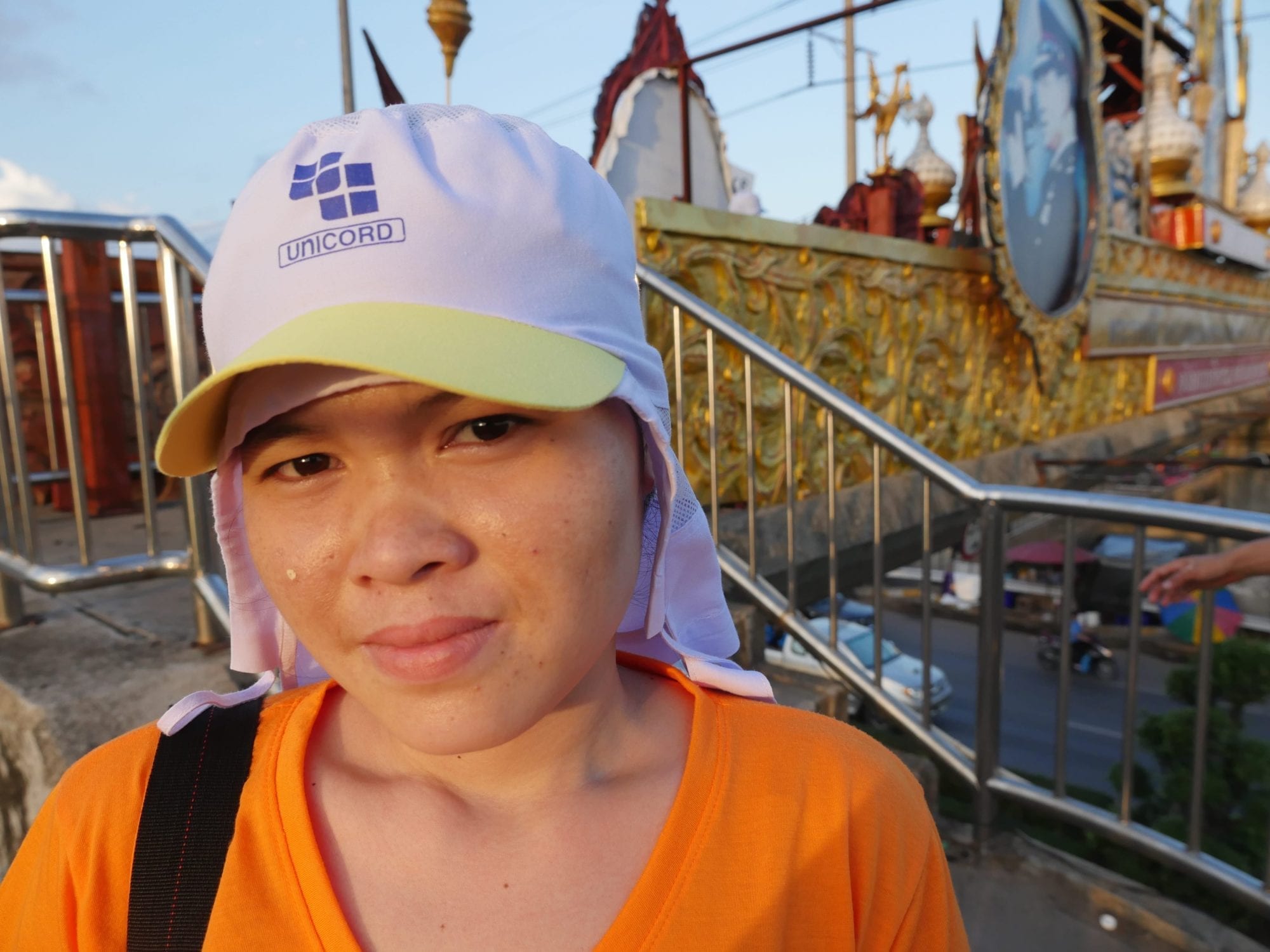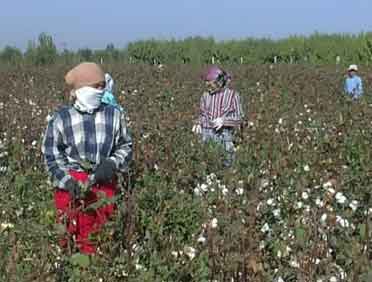
Aug 13, 2015
More than 200 participants from 45 countries took part in Labor Migration: Who Benefits? A Solidarity Center Conference on Worker Rights & Shared Prosperity Aug. 10-12, sharing strategies on empowering migrant workers through organizing unions and associations, reforming the often exploitative labor recruitment process and ensuring access to justice for migrant workers.
Driving the dedication, passion, commitment of the activists who assembled in Bogar, Indonesia, over these past few days are the stories of migrant workers–whose strength, resilience and hope for improving their lives fuels their search for good jobs to improve the lives of themselves and their families.
Several migrant workers described their struggles and successes, via video, throughout the conference. Here are their stories.
Aug 11, 2015
United Nations Special Rapporteur on Freedom of Association, Maina Kiai, gave a video greeting to the more than 240 participants at the Solidarity Center Labor Migration Conference in Indonesia in August.
“International law is very clear that you have your rights wherever you are–that you don’t lose your rights when you leave your country,” Kiai said.
Listen to his full message.

Jul 10, 2015
At a two-acre confectionary manufacturing complex in Malaysia, workers make chocolates, biscuits and other treats. But behind the pretty packaging and its candied contents, say some of the 60 Nepali migrant workers employed at the firm, is a work environment that includes physical abuse to force workers to produce sweets.
The confectionary company is no outlier. Since January, the Malaysian Trades Union Congress (MTUC), and the General Federation of Nepalese Trade Unions (GEFONT), both Solidarity Center allies, have documented hundreds of cases of employer abuse of migrant workers in Malaysia, often rising to the level of forced labor. Many of these workers, from India, Nepal, Sri Lanka, China and elsewhere, report that their employer has not paid them, or has given them wages far below what they had been promised before leaving their home countries. If they are injured on the job, the employer does not pay for their medical care.
A significant number of the migrant workers say they have been physically abused by their employer and forced to live and sleep in unsanitary conditions with no electricity, running water or even mattresses to sleep on. Most are virtually held hostage by their employer, who in nearly all cases, confiscates their passports, rendering them unable to flee desperate and deplorable conditions, potentially making them victims of human trafficking.
The widespread abuse reported across industries and the number of workers involved demonstrate that these cases are not isolated incidents involving rogue employers, but workplace practices condoned within an officially sanctioned environment that denies fundamental human rights. A few examples include:
- Arjunan, who came from India to Malaysia in 2014, was promised a salary of RM 1,200 ($316) a month, but his employer, a road contractor, paid him only RM 150 ($39) per month for food. When Arjunan protested, the employer called Arjunan’s wife and threatened to cut off her husband’s leg and hand. She pawned her jewelry and sent the money to the employer so the employer would return Arjunan’s passport, enabling him to travel home. The employer took the money, RM 4,500 ($1,188), but did not return Arjunan’s passport.
- Dozens of primarily Indian and Nepali workers at one worksite say they were locked in the company dormitory each night with no beds or mattresses and forced to sleep on the floor. They were required to stand for 12 hours at work each day with only a 15-minute break for lunch. Their weekly day off was split into two half days.
- After a machine sliced three of his fingers, Dhurba, 21, a migrant worker from Nepal, says his employer told him the company had no insurance to pay for his workplace injuries.
- Ram, 28, who began working for his employer in 2012, says after two years in an abusive workplace, where he was physically beaten, the employer refused to let him return to his home in Nepal when his work contract expired. Some 18 Nepali migrant workers are employed at the worksite.
- Workers at a global construction company, which employs more than 600 Nepalese workers, 200 Malaysian workers and 100 Bangladeshi workers, say they are forced to toil 16 hours a day, are regularly threatened with physical abuse, and are not paid the minimum wage.
The Asia-Pacific region has the greatest number of forced laborers in the world, accounting for more than 50 percent of all forced labor victims. Globally, forced labor generates $51 billion per year in illegal profits, according to the International Labor Organization (ILO). Thailand and Malaysia were among countries cited last year by the U.S. State Department as failing to comply with the minimum standards to address human trafficking over the past year.

Apr 17, 2015
Some 30 global unions, corporations and nonprofit networks are urging the U.S. State Department to ensure its upcoming Global Trafficking in Persons report accurately reflect the serious, ongoing and government-sponsored forced labor in Turkmenistan and Uzbekistan.
“The Uzbek government continues to operate one of the largest state-orchestrated systems of forced labor in the world,” according to letters sent today by the organizations, which include the Solidarity Center, the AFL-CIO, AFT and the Australian Council of Trade Unions. (Read the letters here and here.)
In Turkmenistan, as in Uzbekistan, the government’s “mass mobilization of citizens to harvest cotton degraded public services, especially schools, which sent their teachers to pick cotton,” according to the organizations. “Some officials also forced civil servants to clean and landscape public spaces and to clean the officials’ homes.”
In its 2014 report, the State Department ranked Uzbekistan as “Tier 3,” a designation that means it does not fully comply with the minimum standards set by the U.S. Trafficking Victims and Protection Act (TVPA) and is not making significant efforts to do so. Turkmenistan was ranked on the Tier 2 Watch List, meaning its government does not fully comply with the TVPA standards but is making significant efforts to become compliant.
The organizations are urging the State Department to maintain Uzbekistan’s Tier 3 status and downgrade Turkmenistan to Tier 3. Key to the Tier 3 designation is the extent to which a country serves as origin, transit or destination for severe forms of trafficking and the extent to which officials or government employees are complicit in severe forms of trafficking.
The Trafficking in Persons report “is an important means to shine light on modern-day slavery and to press governments to do more to eradicate it,” the organizations state. Maintaining the Tier 3 ranking not only accurately reflects the reality on the ground, they say, but will help press the governments to take meaningful steps to end forced labor. The letters were sent to U.S. Secretary of State John Kerry and Ambassador Patricia Butenis, acting director of the State Department’s Office to Monitor and Combat Trafficking in Persons.
A report released this month found that extortion and bribery fueled the forced labor behind Uzbekistan’s cotton harvest in autumn 2014, a coerced mass mobilization that took teachers, health care workers and millions of other employees away from their duties for several weeks.
In Turkmenistan, tens of thousands of teachers, doctors and other public employees were forced, under the threat of dismissal, to spend four months in the cotton fields, according to a 2014 report by Alternative Turkmenistan News. “The working and living conditions of the forced laborers were abysmal, with people often having to sleep in the open air, drink ditch water and bathe in irrigation channels.”
The U.S. Trafficking in Persons report, issued annually for the past 14 years, covers 188 countries and was mandated by the 2000 Trafficking Victims and Protection Act. The act sets standards to eliminate trafficking and creates enforcement measures, such as the withholding or withdrawal of U.S. non-humanitarian and non-trade-related assistance for countries with low rankings.



